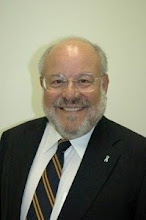The U.S. press has become increasingly accepting of officials speaking anonymously.
Having officials identified only as a “a senior department official” or “veteran diplomat” or “high official” and the like is a way for top and lesser officials to say things without having to take any responsibility for what they say.
Not identified by name, they can exaggerate and make claims they’d be reticent to make if they were personally identified. Unnamed, they can also use media to float trial balloons.
And now U.S. officialdom apparently thinks the public can readily accept this, too.
I was surprised to see in recent days this system of having officials speak anonymously displayed for all to see in dispatches out of the U.S. State Department.
They were in the form of transcripts posted online of various “background” briefings including one last week about of all things considering this system of official anonymity—“open government.”
Online at http://www.state.gov/r/pa/prs/ps/2011/09/172743.htm, it is titled “Background Briefing on a Preview of the Open Government Partnership.”
It involves a press conference on September 19 at the Waldorf Astoria in New York which opens with the “moderator”—not even the government PR person who ran the event is identified—stating: “Alright everybody. We are here to talk about tomorrow’s Open Government Partnership high-level meeting, which the President will participate in.
We have two senior Administration officials …The first is”—his or her name is omitted and, instead, in brackets in the transcript, is—“Senior Administration Official One.”
The “moderator” continues: “And the second is”—again the person’s name is omitted and the transcript says—“Senior Administration Official Two.”
“Okay, with that, Senior Official Number One, take it away,” says the “moderator.”
This isn’t an unusual occurrence. The system of official anonymity has taken deep hold. And with the U.S. government clearly not ashamed of it whatsoever, the government has loaded the Internet with examples of this opposite of responsibility and transparency.
Consider another State Department press conference last week, a “Special Briefing Via Teleconference” from Washington D.C. on September 21titled “Background Briefing of High-Level Meeting on Nuclear Safety”—http://www.state.gov/r/pa/prs/ps/2011/09/172930.htm
It starts with the unnamed “moderator” thanking “you callers for joining us today…We are delighted to have as our briefer today”—and then the identity of the official is omitted but in brackets are the words “Senior State Department Official.” And the “moderator” goes on, “Hereafter known as Senior State Department Official.”
It’s not as if the anonymous U.S. official is saying unimportant things. The “Senior State Department Official” speaks of the disaster at Fukushima Daiichi nuclear power plant complex in Japan and how it shows that “nuclear accidents can transcend national borders and have international consequences. A nuclear accident anywhere affects all of us.” And then he or she goes on to declare that despite Fukushima, “the United States remains committed to nuclear power.”
Is it not important to know, by name, the official who made this declaration?
Years ago, in doing research for a book on U.S.activities in Central America—at a time when the U.S. was arming the “contras” to stage attacks in Nicaragua—I got a taste of this government-by-anonymous-officials. In the book (Nicaragua: America’s New Vietnam?) I wrote about going to a press conference at the U.S. embassy in Tegucigalpa, Honduras at which a panel was being presented that included the embassy’s military, public affairs and political officers. Honduras was then being set up as a jumping off point for direct U.S. intervention in Nicaragua.
The press conference began with the embassy’s press attaché discussing with the assembled journalists the “ground rules” for the event—whether what the officers will say will be “attributed to U.S. officials, diplomatic sources, or U.S. official sources.” I and some other journalists there that day, not posted to Honduras, insisted that all comments be on the record.
As I explained in the book: “I am particularly insistent on this point having long felt that ‘off the record’ briefings by officials shield them from accountability and responsibility and compromise the principles of journalism. One senses that such an ‘on the record’ press conference is somewhat unusual here. Reporters stationed in Honduras are not pressing for it. Such reporters are often dependent on embassies or government officials for tips and news—or think they are.”
In the book, and in the account from reporters who were at the press conference that day, the comments of the officials were attributed—by name—to the officials making them.
This, I believe, is the way it should be—rather than public officials hiding behind the cloak of anonymity. The trend to official anonymity seems to, if anything, have grown. The press has increasingly been letting officialdom get away with this cowardly game, indeed developed a co-dependency with government in allowing it. And now, with the Internet, U.S. government agencies have no shame in sharing with the public a system that seriously compromises open and accountable government.
Subscribe to:
Post Comments (Atom)


No comments:
Post a Comment